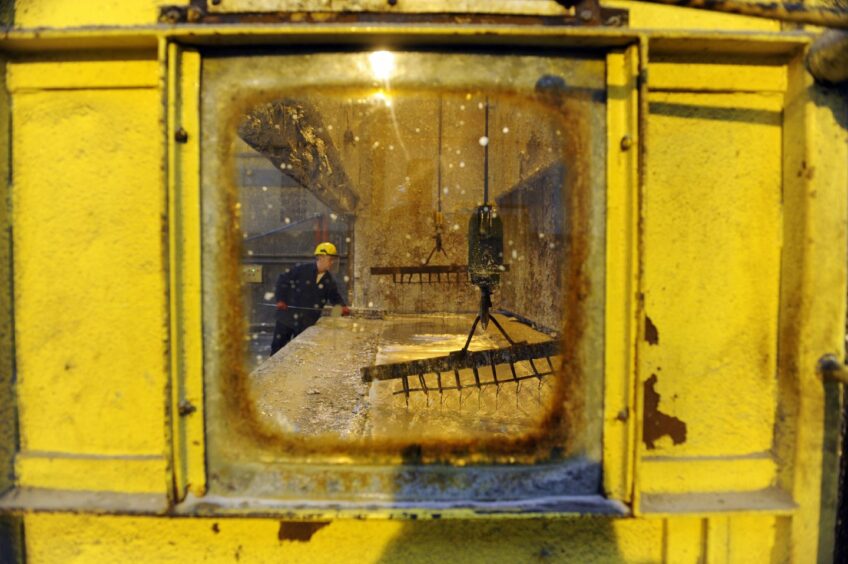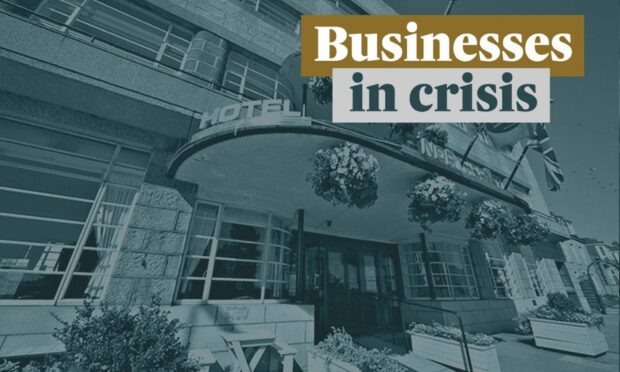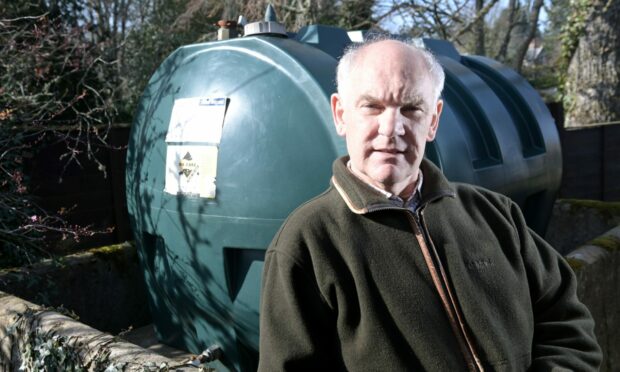Industry body Scottish Engineering is cautioning industrial capacity is “desperately at risk” unless companies receive urgent help with energy costs, with the plea backed by Elgin-based engineering firm Highland Galvanizers.
The warning from Scottish Engineering comes just days before the election of a new Conservative leader next week with the incoming Prime Minister’s in-tray dominated by huge rises in domestic energy costs, but the association is also highlighting the acute risks posed to businesses.
The emergency for large, energy-intensive businesses is reflected amongst companies of all sizes as hosts of small businesses across the north and north-east have also been hit with vast increases in their energy bills.
In its quarterly review, the association cites one engineering business of fewer than 50 employees which has been told its energy bill will rise from £15,000 to £80,000 per month, a situation which is “unsustainable.”
Scottish Engineering chief executive Paul Sheerin told the Press and Journal: “What we are going to have is a societal impact on people losing their jobs. We are not trying to second-guess the new Prime Minister, but [they have] to look at industrial energy as much as consumer energy.
“We just cannot assume businesses can simply pass on these extra costs – indeed responses from industry underline that only 15% of companies believe they could fully or substantially pass on increases.
Direct support needed
“Where to start for next week’s new cabinet? Well, there are a plethora of potential remedies being proposed by energy industry participants, politicians, and industry commentators, but they will be of no consequence unless they bring direct support for industrial energy costs.”
That call for support was echoed by Highland Galvanizers chairman Gordon Bulloch who said: “It is difficult obviously with the rises in energy prices, especially with energy-intensive businesses like ourselves. You are having to factor in three, four, five times the prices you had one or two years ago.
“The house consumer, these are all guys who work for us and so if the economy stalls or falters and we are having to lay guys off, that only can make things worse, so we are looking for some action whether it be a solution both for the consumer, but also with industry.
“We have got minimum wage, living wage increases, you have got to get that from somewhere.
“Our employees will be looking for a decent rise come the new year – if there could be something could be done whether it be tax incentives or something like that, anything would be a help.”
UK has higher than average dependance on gas
The Scottish Engineering chief stressed even before the energy crisis started, that figures from the UK Department for Business, Energy and Industrial Strategy (Beis) showed average industrial energy prices including taxes in the UK were the second-highest in the EU14 group and 48% above the EU average.
Mr Sheerin added: “That’s a picture that unfortunately will only have deteriorated given the UK’s higher than average dependence on gas, whose price predominantly sets our overall energy pricing.
“Until now the public discussion has understandably centred on the impact on consumers, justifiably concerned with the societal impact that an amplified fuel poverty scenario would have. It’s a discussion the incoming prime minister and their new cabinet urgently have to extend to include industrial energy costs.”
Key points from the quarterly survey show companies which have renewed or are currently renewing their energy contract face an average increase of a 3.6 times multiplier, while one third of respondents said energy prices “put their business sustainability at risk.”
Meanwhile more than 60% of respondents noted they will only be able to partially recover increased costs from energy pricing and almost one quarter will be unable to recover those increases at all.
But Mr Sheerin also pointed to some light in the darkness in terms of robust order books for the Scottish engineering sector. “Normally, by now with the kind of constant, difficult messages, high fuel prices, high logistics prices, people lack of availability and now energy prices we would be in a slump,” he said.
We need to preserve and grow our industrial capacity”
Scottish Engineering chief executive Paul Sheerin
“That is not happening. Companies are busy, orders are strong and the forecast remains strong.
“This summer of yet more record-breaking temperatures, and wildfires outside of London reminds us engineering and manufacturing have big tasks arriving to implement the changes urgently needed to address another emergency: our climate.
“To do that we need to preserve and grow our industrial capacity – as others will certainly fill the gap if we don’t – and that is currently desperately at risk without help on industrial energy costs.”








